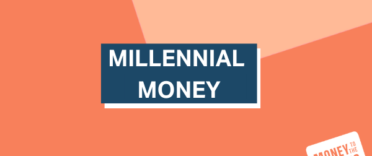In this week's millennial money episode, I ask financial expert Damien Fahy about the things people should consider when deciding the asset allocation of their pension. We also discuss the impact of debt on your chances of getting a mortgage.
Damien Says:
What is asset allocation and what does it mean for my pension?
Asset allocation is a term that describes what sort of assets you have in your pension and it can be in reference to the mix of equity or shares your pension is invested in as well as the geographical locations. If you have a pension or an ISA then you can think of it as a box that has some form of tax incentive (whether that be on the way in or on the way out) and the amount that you put in it as well as the choices you make (in terms of your attitude to risk) can determine how much you make (or lose).
There are a variety of things that you can pick from to make up your pension asset allocation or asset mix such as UK equities (which is shares of companies in the UK) It could be things like bonds or it can be types of commercial property. Different types of assets have different risk levels, shares are at the risky end because they go up and down so are very volatile, cash is down the lower end with bonds and then there is property which you should see slow steady growth over time.
There are different types of equity, emerging markets are riskier than UK or American equities which are what we call developed world equities. Asset allocation is the process of deciding what type of asset to hold and how much.
How do I know what assets to choose?
There is no set rule and a lot will be decided by your own attitude to risk. If you are happy to take risks, then so long as you are investing over the long term, you would likely want to choose the riskier assets, however if you are risk-averse then you are likely to choose assets down at the low-risk end. Generally speaking what you want is a mix that is diversified so you have a bit of everything because often when one thing goes up something else will go down.
In simple terms, if the stock market is crashing, if you have bonds or cash or property in your portfolio then they may actually be going up (or they won't be falling as much) and so choosing the right asset mix means you can end up riding these sort of ups and downs in the markets.
Determining your asset mix is not only based on your attitude to risk but it should be reflective of your age as well. So when thinking about a pension, if you're young you can afford to take more risk because if the stock market collapses (every now and then it may fall 10-20%) you will have time for it to recover. These cycles can happen every decade or so and there is no set frequency, but it is important to realise that they do occur.
For somebody in their 20s, as a general rule (this isn't advice) you could afford to move towards the higher risk assets because someone who is young will have time on their side.
How do I work out how much to have in my investment assets?
That's quite a tricky one to answer. We at Money to the Masses have built an investment asset allocation tool which can help with that process. It is not advice, but uses a sensible rule of thumb, which is even used in the city as a basis for a lot of asset allocation. You simply take your age and you minus that from 100, so if you're 20, then you take that away from a hundred and you are left with 80. 80 is therefore the percentage you should have in high risk and medium risk investments (things like equities) and the other 20% would be in the low risk end, so cash and bonds etc. The tool that we have developed will take into account your age and your risk profile and come up with a potential asset allocation mix tailored to you.
What is a pension?
A pension is essentially a box that is dedicated to saving for retirement. It is what you put in that box, determined by the mix of assets that will make it grow (otherwise it would just be a box with money in it that's not doing anything)
Who decides what assets go into a pension?
It's a good question.
Often in workplace pensions there'll be a default fund; one you'll automatically go. Alternatively, you may have gone into a managed fund, which is a fund that is managed by someone else who is in charge of the asset mix and allocation. Most people don't realise that they are in a default fund but can in fact choose to pick where it goes; so someone might choose to invest in something like US equities such as the next Facebook. Ultimately what it really boils down to is that most people don't realise they can make that choice themselves. So the message is go and look at your pension and go and look at your choices.
Will credit card debt affect me getting a mortgage?
The simple answer is yes.
You've got to think about a mortgage as a form of debt. A mortgage is basically just a massive loan to buy a house. A mortgage lender will assess how much of a risk you are and whether you're going to pay it back. They will look at your credit report (You can check yours for free online from places like Noddle or Experian). A credit report will show the history of all the credit you've taken out and they look at that and they look at how you manage your credit, how much you have and the availability of the credit you can get access to. They will then ultimately decide whether you're a risk and whether they want to lend to you or not.
If you have a lot of debt and big overdrafts the likelihood is that a lender may refuse to lend to you. That is why, way ahead of applying for a mortgage you need to get a handle on your credit, find your credit report and make sure it's correct. A good way to see how you are doing in terms of your finances is to take Damien's money MOT. It is free and will take only a couple of minutes to get your grade. You can opt to receive Damien's daily or weekly emails in order to help you to improve your finances, starting with the most important things first.
How does my credit score affect me getting a mortgage?
You don't actually have a universal credit score, that's actually a myth. Each lender does their own credit scoring of you. The best thing you can do is to manage your debt well by paying it off regularly and never missing a payment. Missing a payment on a credit card can have a huge impact on whether you will be able to get a mortgage in the future.
Also managing your debt, generally speaking as again another rule of thumb if you manage to keep the balance of your debt to around 15% to 30% of the available credit you have then that is seen as being well managed by lenders. Rather than being right up to the limits that you could possibly borrow so try and keep it managed well.
Can I still get a mortgage if I'm in debt but I make regular payments?
The reality is if you've got lots of debt, lenders are unlikely to want to lend you any more money. Would you lend another £50 to a friend who already owes you £200? It's the same idea, however if you're managing your debt well and overpaying where possible. The fact that you've got a plan and you're taking control of the situation (rather than burying your head in the sand) is a real positive.
If you have any particular burning questions or topics that you would like to be discussed, email [email protected]. Head over to our social media accounts too:
Facebook - Money to the Masses
Twitter - @money2themasses
Instagram - @moneytothemasses
Youtube - Money to the Masses
[easy-tweet tweet="Millennial Money with Damien & Lauren" user=""]



